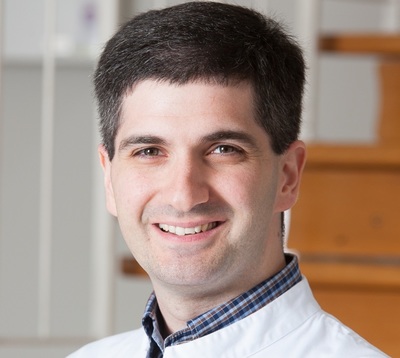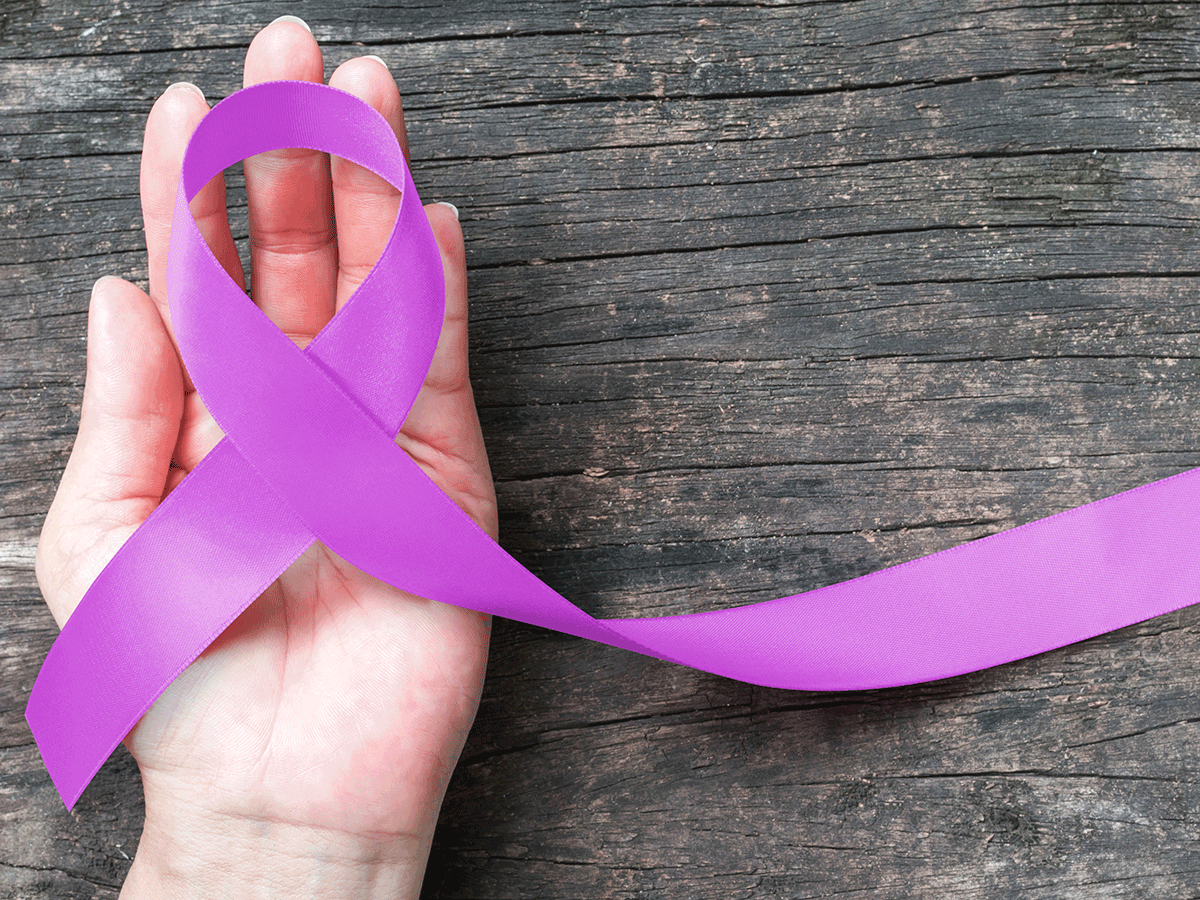SAKK study reveals new approaches in the treatment of testicular cancer
In mid-October The Lancet Oncology published the results of study "SAKK 01/10", conducted by a research group of the Swiss Group for Clinical Cancer Research (SAKK), on the treatment of patients with a testicular tumor (specifically a stage IIA/B seminoma). The researchers clearly demonstrated that the combination of mild chemotherapy followed by reduced radiotherapy was just as effective as existing standard treatments but produced fewer side effects. The SAKK study is the largest completed prospective study on treatment optimization in this setting.[1]
Testicular cancer is the most common type of cancer in men under 40 in Switzerland, affecting around 470 men each year.[2] The most common subtype of testicular cancer is the seminoma. About 15 % of all patients with a seminoma are diagnosed in stage II, i.e. with spreading to lymph nodes in the abdomen and pelvis.[3]
Until now, these patients have been treated either with comprehensive radiotherapy along the major abdominal and pelvic vessels or intensive chemotherapy with three to four cycles of two to three chemotherapy drugs.[4]
The prognosis is good overall, with a cure rate of over 90 % in patients receiving one of these types of treatment. Nevertheless, side effects of the treatment pose a major problem. Hair loss, sustained fatigue, susceptibility to infections, adverse effects on kidneys, lungs, heart, vessels and ears are common, and these treatments can also result in the development of another tumor, even decades after the treatment.[4]
SAKK CEO Dr. Hans Rudolf Keller explains: "For us as an independent clinical cancer research network it is crucially important that our research should help improve the quality of life of cancer patients. When the study results are good enough to be published even in The Lancet, then that also fills us with pride."
Study SAKK 01/10 was conducted with 116 patients in 20 centers in Switzerland and Germany over six years. The innovative feature of the study was to combine the intensive chemotherapy or radiotherapy, which are associated with side effects, with a combination of a single dose of the chemotherapy drug carboplatin and targeted radiotherapy of the involved lymph nodes, with the ultimate aim of reducing the volume to be irradiated by 75 % on average.[1]
A very high level of efficacy was apparent after a median follow-up of 4.5 years. 94 % of the patients did not suffer any relapse of the disease, while the few patients who did experience a relapse were cured with standard chemotherapy. Substantial differences were observed between the tolerability of the new treatment and the known tolerability of standard treatments. More than half of the patients had no side effects at all during the treatment and were able to go about their normal lives, a significant advantage for patients who are often young and employed with families. Still more important: no organ damage or other tumors connected with the treatment have been observed in the follow-up to date.[1]
Dr. Alexandros Papachristofilou, Senior Physician in Radiation Oncology and Head of the Abdominal Tumor Center at University Hospital Basel, is delighted with the study results: "With study SAKK 01/10, we have managed to establish a new possible treatment standard for patients with a stage IIA/B seminoma: just as effective as conventional therapy, but much better tolerated. This new type of treatment, developed in Switzerland, can now be adopted worldwide so that as many patients as possible can benefit from it. With our follow-up project SAKK 01/18, we are now working to improve the treatment still further, always with the same objective: as little treatment as possible, as much as necessary."
His co-study director and Member of the Board of SAKK, Dr. Richard Cathomas from the Graubünden Cantonal Hospital, sees one great advantage for patients thanks to the study: "From my years of experience with testicular tumors, I know how stressful the existing standard treatment for this type of cancer can be for the patients. The therapeutic combination tested by us is just as effective but, thanks to the far fewer side effects, much more pleasant and tolerable for those affected and is therefore a definite advance in the treatment of testicular cancer."

The principal investigator Dr. Alexandros Papachristofilou works at University Hospital Basel as a Senior Physician in the Clinic of Radiotherapy and Radiation Oncology. Since 2007 he has been an active member of SAKK and is currently Vice President of the Urogenital Tumors Project Group.
Study SAKK 01/10 was conducted together with the interdisciplinary German Testicular Cancer Study Group (GTCSG). The State Secretariat for Education, Research and Innovation (SERI) and the Rising Tide Foundation for Clinical Cancer Research (RTFCCR) funded the study.
About SAKK
The Swiss Group for Clinical Cancer Research (SAKK) is a non-profit organization, which has been conducting patient-oriented clinical cancer trials since 1965. The regular members of SAKK are the main clinical-oncology sites at the cantonal and private hospitals and university hospitals. They work with other hospital and physicians and together form the SAKK network. The SAKK Competence Center in Bern helps researching physicians develop and conduct multicenter and interdisciplinary trials independently of the pharmaceutical industry.
Contact
Sarah Nyffeler
Head Marketing & Communications
SAKK Competence Center
Effingerstrasse 33
3008 Bern
+41 31 508 41 68
communication@sakk.ch
[1] Lancet Oncol 2022. https://www.thelancet.com/journals/lanonc/article/PIIS1470-2045(22)00564-2/fulltext
[2] Schweizerischer Krebsbericht 2021. https://www.nkrs.ch/assets/files/publications/Krebsbericht2021/1177-2100-de.pdf
[3] Kollmannsberger C, Tyldesley S, Moore C, et al. Evolution in management of testicular seminoma: population-based outcomes with selective utilization of active therapies. Ann Oncol 2011; 22: 808–14.
[4] ESMO Consensus Conference Guidelines on testicular germ cell cancer: diagnosis, treatment and follow-up. Ann Oncol 2018; 29: 1658–1686
